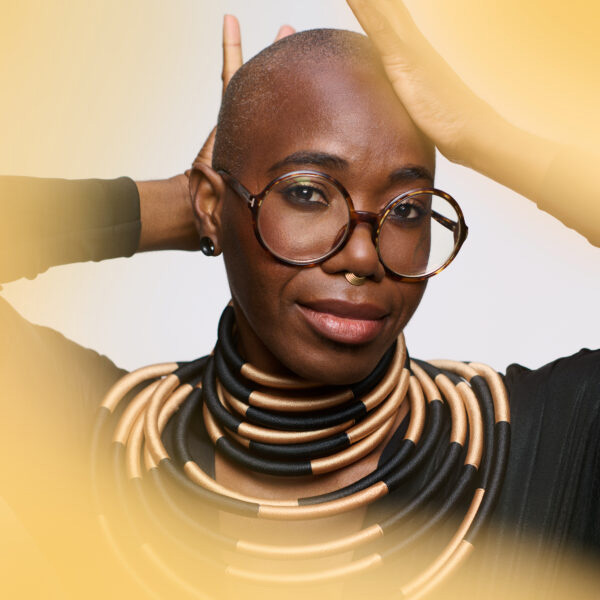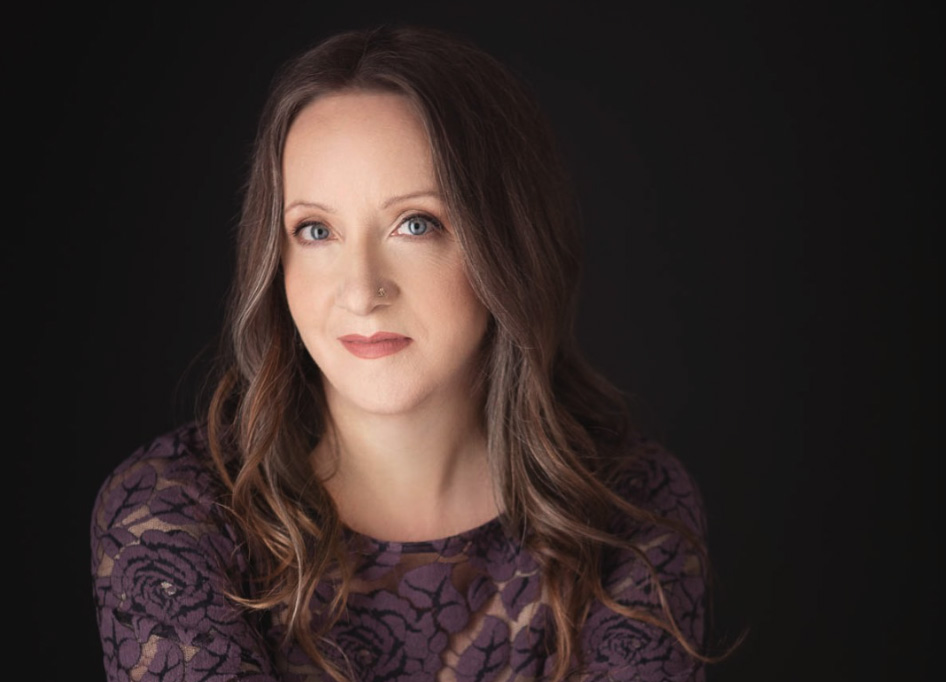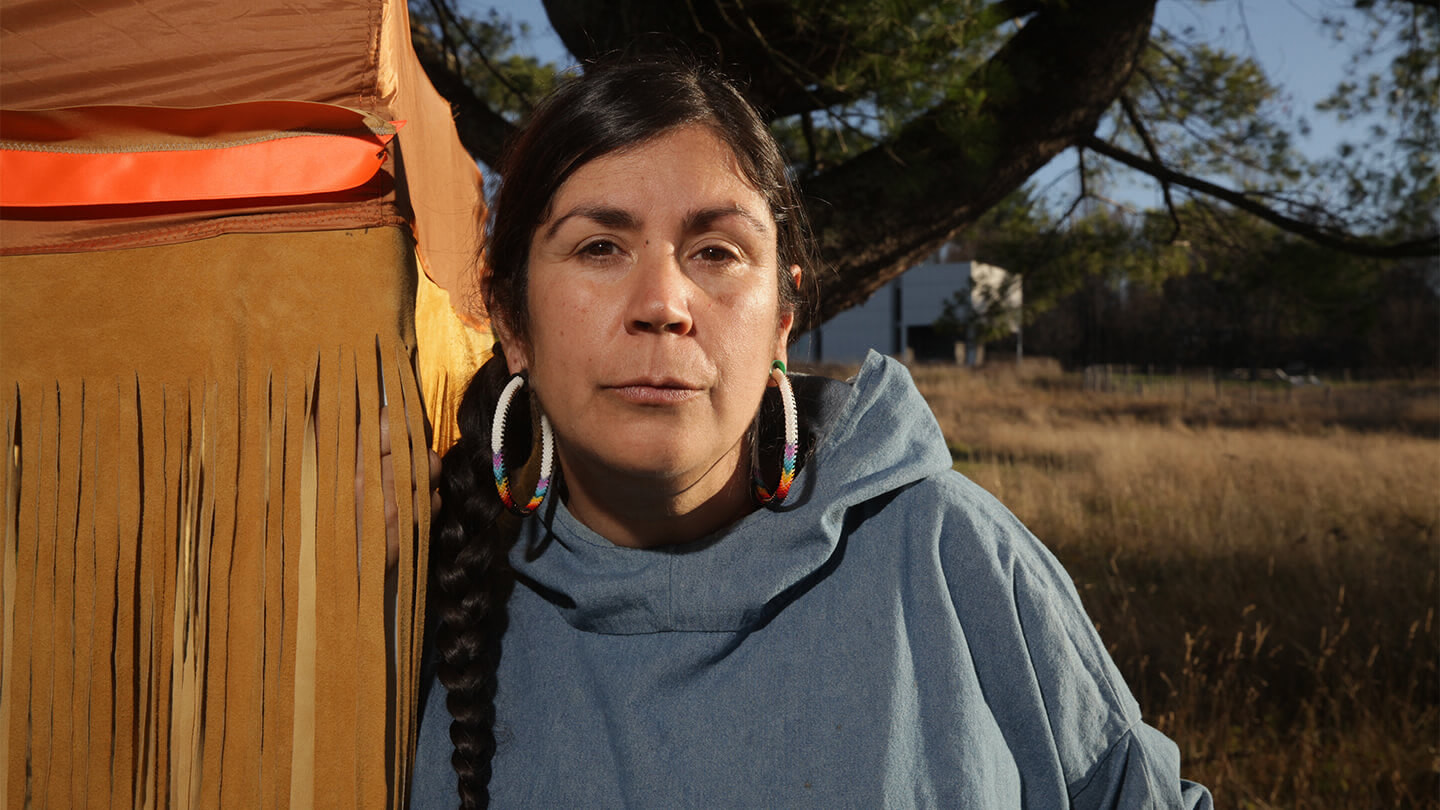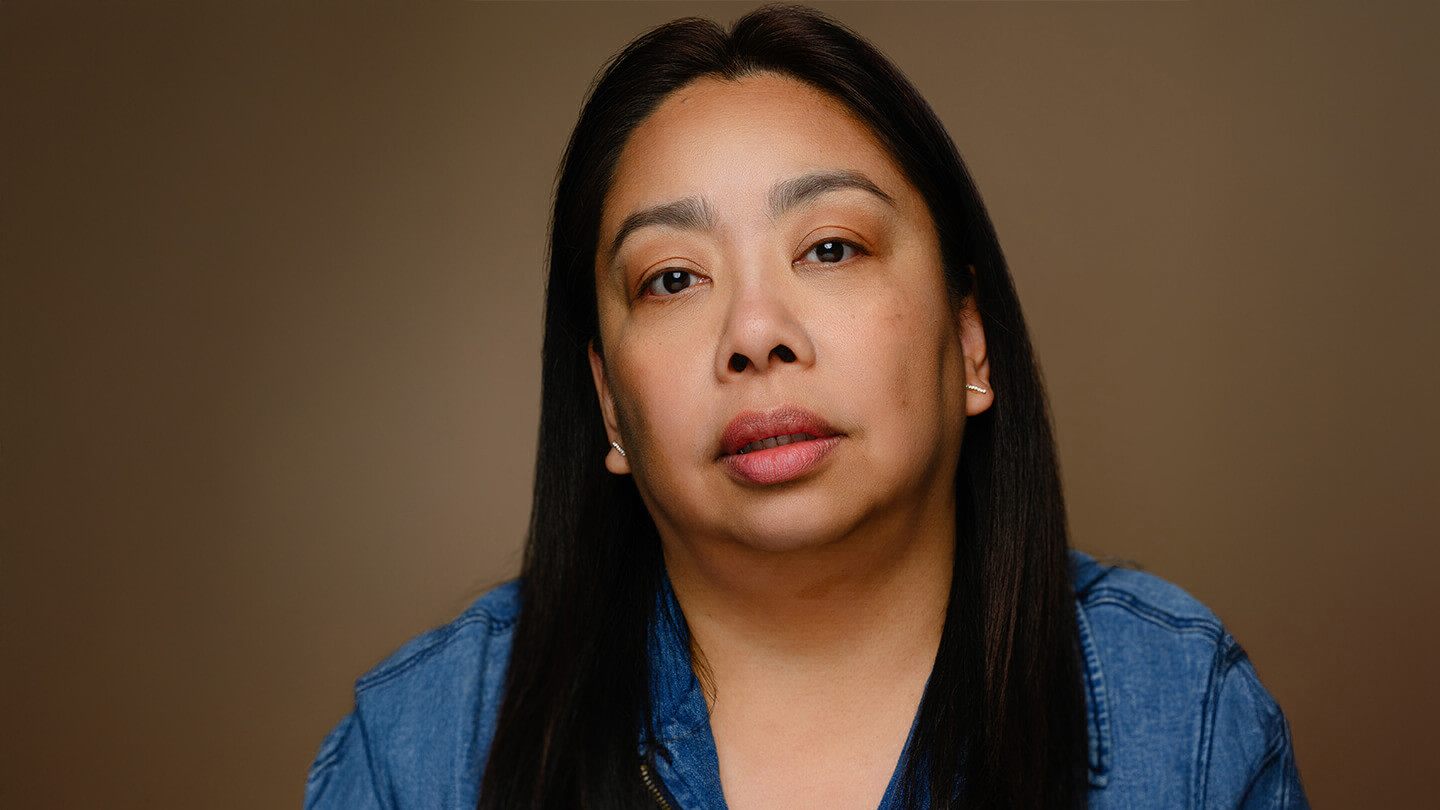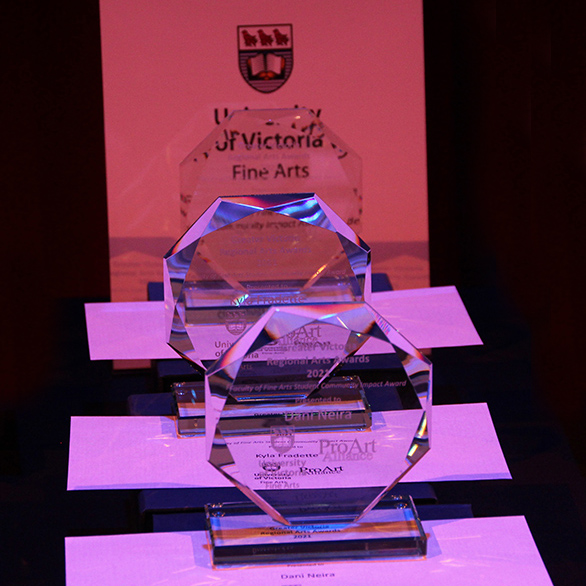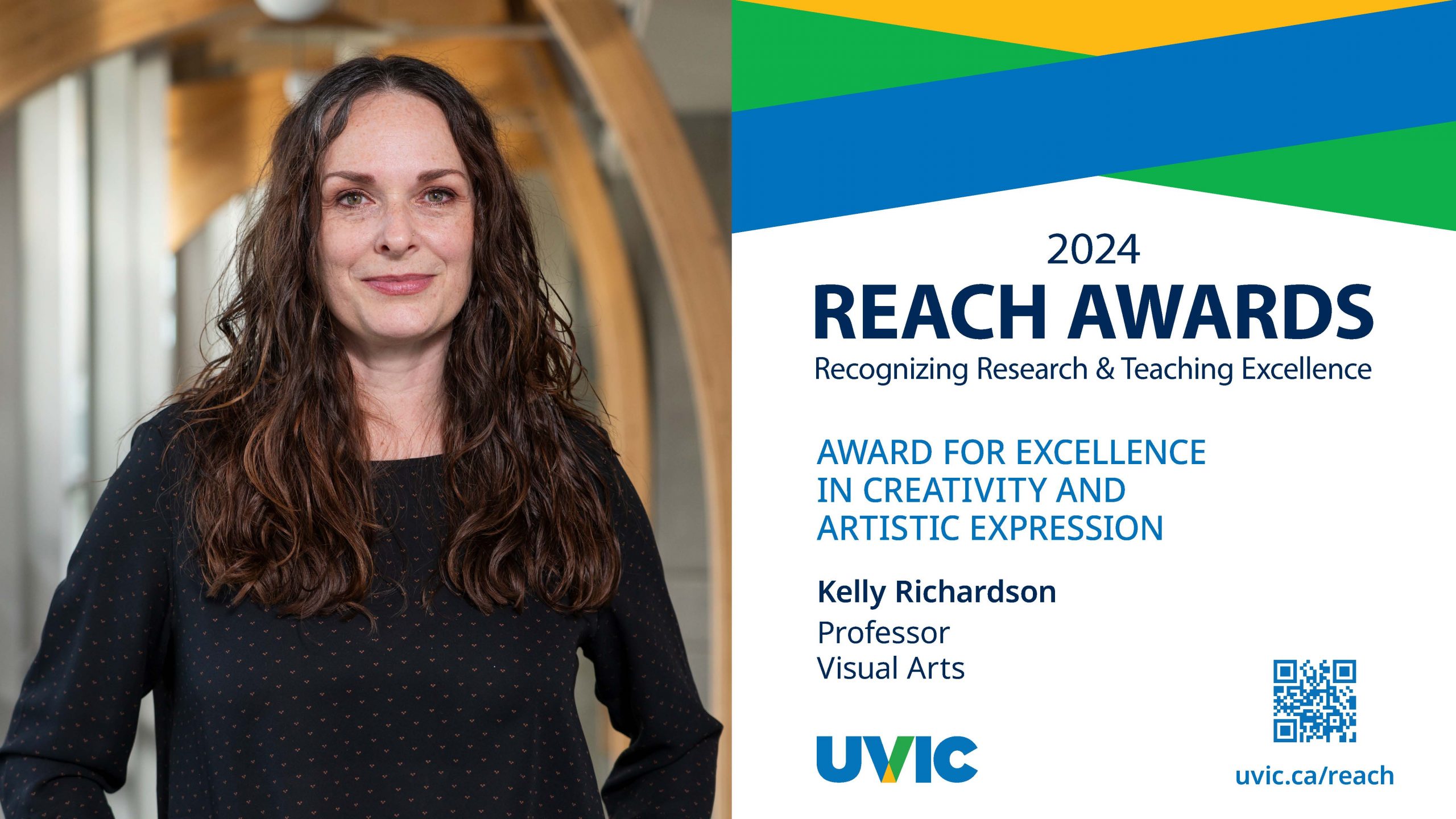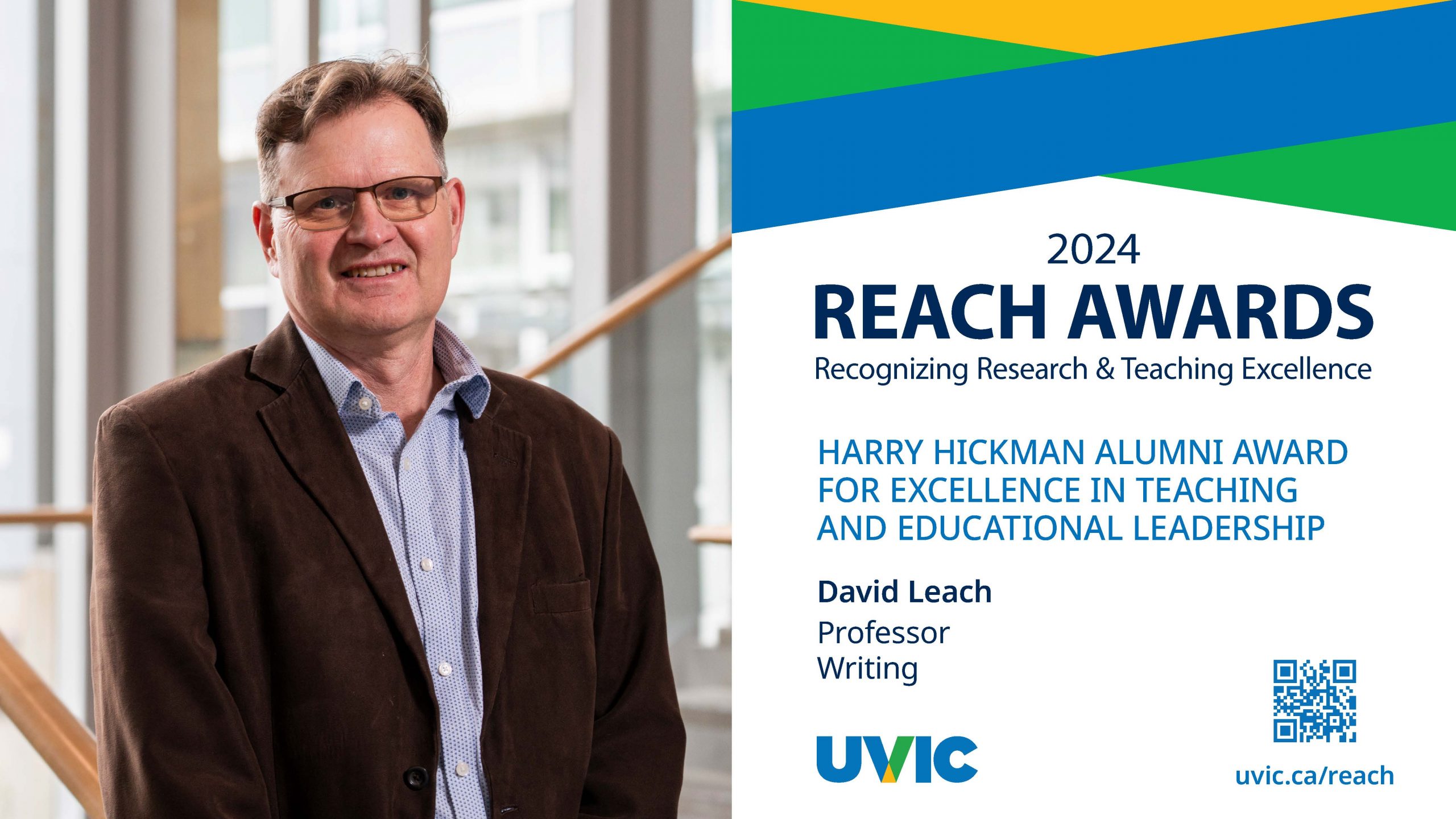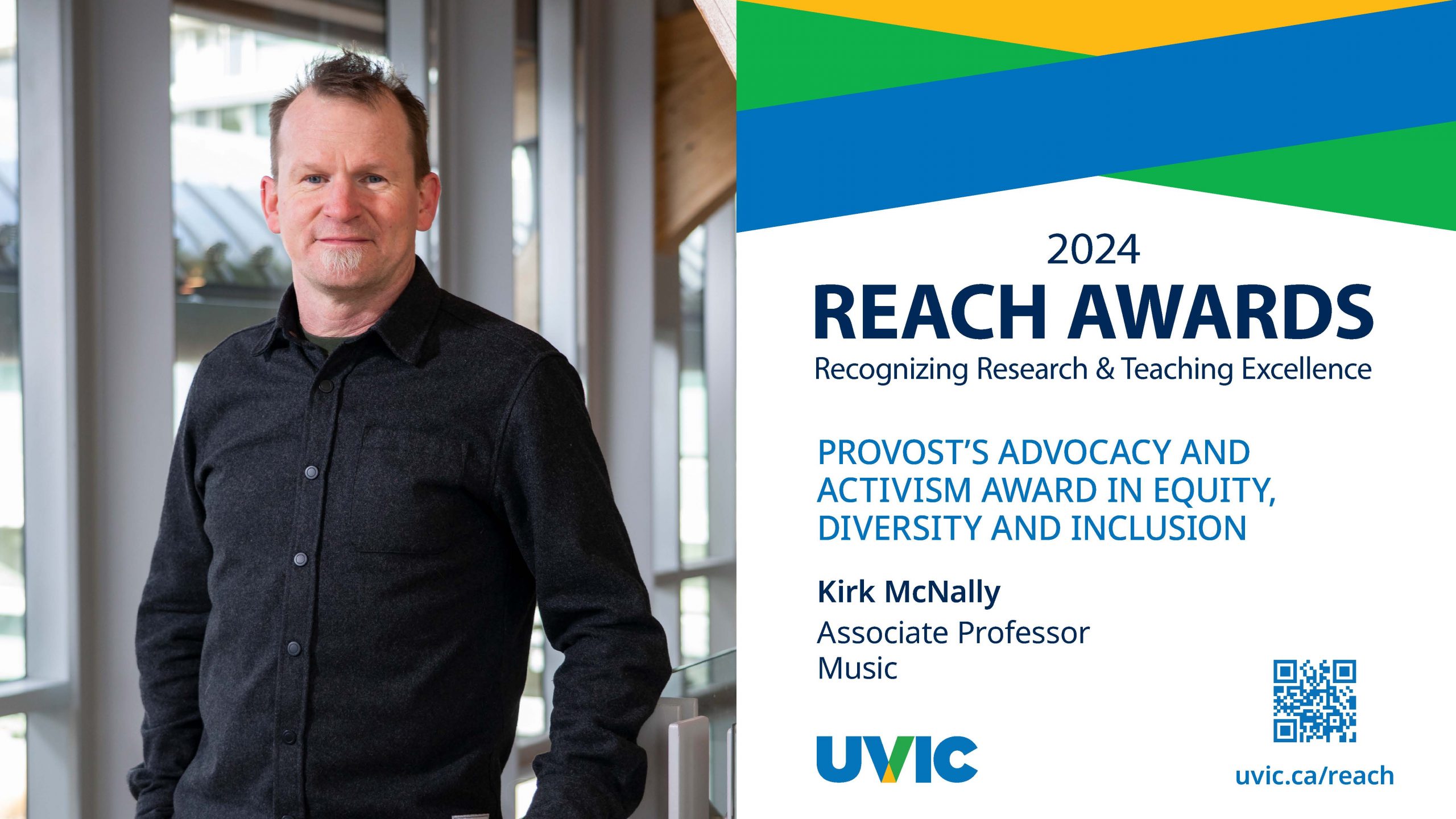Instructor & Lehan Lecturer wins $25K award
Congratulations go out to Theatre instructor and 2025 Lehan Family Activism & the Arts Lecturer d’bi.young anitafrika, who has been awarded a $25,000 Johanna Metcalf Performing Arts Prize.
An internationally acclaimed Black-queer-feminist non-binary dub poet, playwright-performer, dramaturge-director and scholar-activist, d’bi’s visionary contributions to theatre, education and leadership have made space for rigorous decolonial practice. You can watch their 2025 Lehan Lecture here.
With over 25 years of trailblazing artistry in plays, albums, books and leadership — their intersectional Anitafrika Method, rooted in Black feminist thought, has revolutionized arts-based practices nationally and internationally — d’bi also recently received a $242,500 Canada Council grant to establish a digital theatre archive, collaborating with Black Womxn Circle and UVic Libraries: KULA. While completing their PhD in London (UK), they have been leading training programs at Toronto’s Soulpepper and Obsidian theatres and here at UVic.
Selected from a field of 15 finalists, d’bi is one of five Metcalf winners: each receives $25,000 and chooses a protégé to receive a separate $10,000 prize: d’bi’s protégé is Sashoya Simpson, a Jamaican-Canadian writer, theatre practitioner and the associate artistic director of Watah Theatre and the Black Theatre School.
The Metcalf Prizes celebrate Ontario’s leading creators in the performing arts and is one of the largest unrestricted prizes for artists in Ontario, celebrating mid-career and early-career artists across multiple disciplines.
